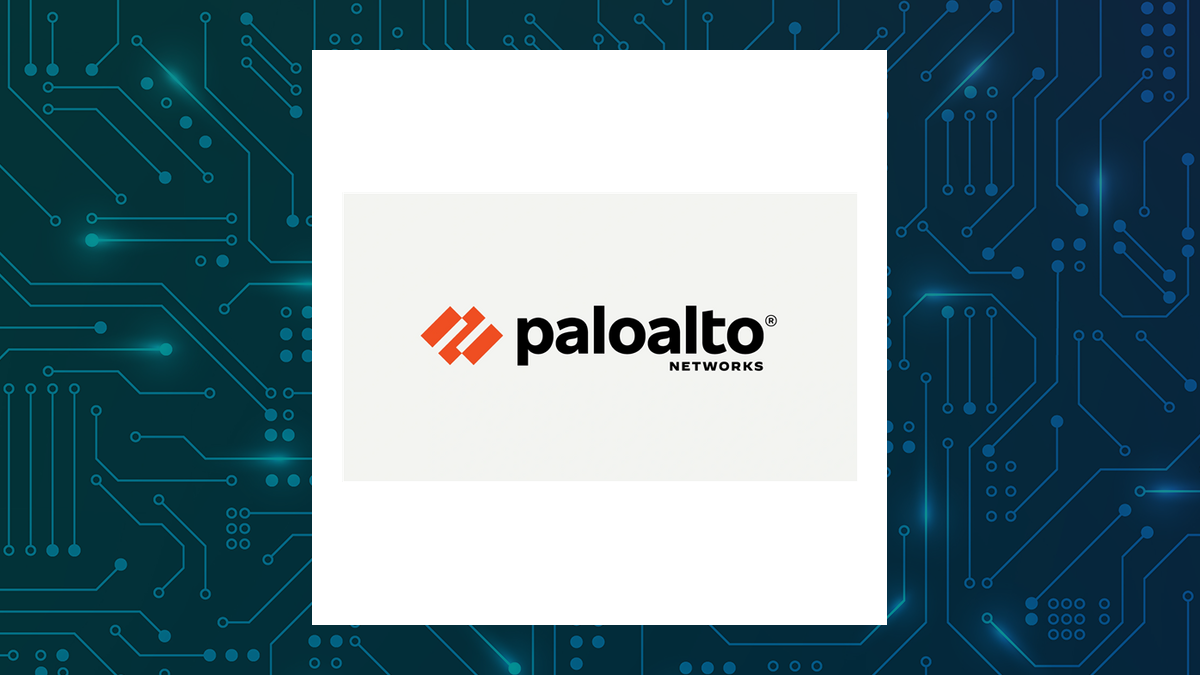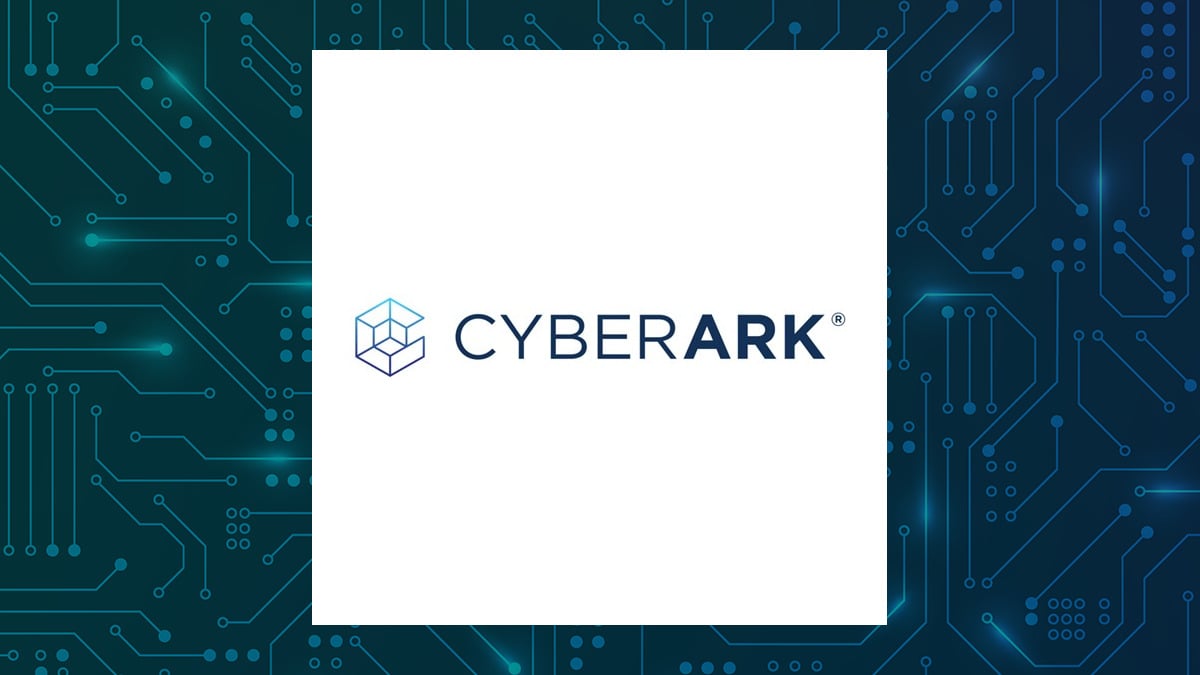Palo Alto Networks (NASDAQ:PANW – Get Free Report) and CyberArk Software (NASDAQ:CYBR – Get Free Report) are both large-cap computer and technology companies, but which is the superior business? We will contrast the two companies based on the strength of their analyst recommendations, profitability, dividends, risk, valuation, earnings and institutional ownership.
Risk and Volatility
Palo Alto Networks has a beta of 0.97, meaning that its stock price is 3% less volatile than the S&P 500. Comparatively, CyberArk Software has a beta of 1, meaning that its stock price has a similar volatility profile to the S&P 500.
Profitability
This table compares Palo Alto Networks and CyberArk Software’s net margins, return on equity and return on assets.
| Net Margins | Return on Equity | Return on Assets | |
| Palo Alto Networks | 13.95% | 19.48% | 5.77% |
| CyberArk Software | -7.97% | 0.71% | 0.43% |
Institutional & Insider Ownership
Valuation & Earnings
This table compares Palo Alto Networks and CyberArk Software”s gross revenue, earnings per share (EPS) and valuation.
| Gross Revenue | Price/Sales Ratio | Net Income | Earnings Per Share | Price/Earnings Ratio | |
| Palo Alto Networks | $8.87 billion | 15.27 | $2.58 billion | $1.75 | 116.15 |
| CyberArk Software | $1.00 billion | 18.71 | -$93.46 million | ($1.86) | -203.61 |
Palo Alto Networks has higher revenue and earnings than CyberArk Software. CyberArk Software is trading at a lower price-to-earnings ratio than Palo Alto Networks, indicating that it is currently the more affordable of the two stocks.
Analyst Ratings
This is a breakdown of current recommendations and price targets for Palo Alto Networks and CyberArk Software, as provided by MarketBeat.
| Sell Ratings | Hold Ratings | Buy Ratings | Strong Buy Ratings | Rating Score | |
| Palo Alto Networks | 2 | 12 | 27 | 0 | 2.61 |
| CyberArk Software | 0 | 1 | 26 | 1 | 3.00 |
Palo Alto Networks presently has a consensus target price of $209.42, suggesting a potential upside of 3.03%. CyberArk Software has a consensus target price of $418.75, suggesting a potential upside of 10.57%. Given CyberArk Software’s stronger consensus rating and higher probable upside, analysts clearly believe CyberArk Software is more favorable than Palo Alto Networks.
Summary
Palo Alto Networks beats CyberArk Software on 9 of the 15 factors compared between the two stocks.
About Palo Alto Networks
 Palo Alto Networks, Inc. provides cybersecurity solutions worldwide. The company offers firewall appliances and software; and Panorama, a security management solution for the global control of network security platform as a virtual or a physical appliance. It also provides subscription services covering the areas of threat prevention, malware and persistent threat, URL filtering, laptop and mobile device protection, DNS security, Internet of Things security, SaaS security API, and SaaS security inline, as well as threat intelligence, and data loss prevention. In addition, the company offers cloud security, secure access, security operations, and threat intelligence and security consulting; professional services, including architecture design and planning, implementation, configuration, and firewall migration; education services, such as certifications, as well as online and in-classroom training; and support services. It sells its products and services through its channel partners, as well as directly to medium to large enterprises, service providers, and government entities operating in various industries, including education, energy, financial services, government entities, healthcare, Internet and media, manufacturing, public sector, and telecommunications. Palo Alto Networks, Inc. was incorporated in 2005 and is headquartered in Santa Clara, California.
Palo Alto Networks, Inc. provides cybersecurity solutions worldwide. The company offers firewall appliances and software; and Panorama, a security management solution for the global control of network security platform as a virtual or a physical appliance. It also provides subscription services covering the areas of threat prevention, malware and persistent threat, URL filtering, laptop and mobile device protection, DNS security, Internet of Things security, SaaS security API, and SaaS security inline, as well as threat intelligence, and data loss prevention. In addition, the company offers cloud security, secure access, security operations, and threat intelligence and security consulting; professional services, including architecture design and planning, implementation, configuration, and firewall migration; education services, such as certifications, as well as online and in-classroom training; and support services. It sells its products and services through its channel partners, as well as directly to medium to large enterprises, service providers, and government entities operating in various industries, including education, energy, financial services, government entities, healthcare, Internet and media, manufacturing, public sector, and telecommunications. Palo Alto Networks, Inc. was incorporated in 2005 and is headquartered in Santa Clara, California.
About CyberArk Software
 CyberArk Software Ltd., together with its subsidiaries, develops, markets, and sells software-based identity security solutions and services in the United States, Europe, the Middle East, Africa, and internationally. Its solutions include Privileged Access Manager, which offers risk-based credential security and session; Vendor Privileged Access Manager combines Privileged Access Manager and Remote Access to provide secure access to third-party vendors; Dynamic Privileged Access, a SaaS solution that provides just-in-time access to Linux Virtual Machines; Endpoint Privilege Manager, a SaaS solution that secures privileges on the endpoint; and Secure Desktop, a solution that protects access to endpoints. The company also provides workforce identity, which offers adaptive multi-factor authentication (MFA), single sign-on, secure web sessions, workforce password management, application gateway, identity lifecycle management, and directory services; and customer identity services that provides authentication and authorization services, MFA, directory, and user management. In addition, it offers Secrets Manager Credential Providers to provide and manage the credentials used by third-party solutions; Conjur Enterprise and Conjur Cloud, which offers a secrets management solution for specific requirements; Secrets Hub, a centralized visibility and management platform; Cloud Security solutions; Identity Management solutions, including lifecycle management, identity flows, identity compliance, and directory services; and Secure Browser. The company serves financial services, manufacturing, insurance, healthcare, energy and utilities, transportation, retail, technology, and telecommunications industries; and government agencies. The company was incorporated in 1996 and is headquartered in Petah Tikva, Israel.
CyberArk Software Ltd., together with its subsidiaries, develops, markets, and sells software-based identity security solutions and services in the United States, Europe, the Middle East, Africa, and internationally. Its solutions include Privileged Access Manager, which offers risk-based credential security and session; Vendor Privileged Access Manager combines Privileged Access Manager and Remote Access to provide secure access to third-party vendors; Dynamic Privileged Access, a SaaS solution that provides just-in-time access to Linux Virtual Machines; Endpoint Privilege Manager, a SaaS solution that secures privileges on the endpoint; and Secure Desktop, a solution that protects access to endpoints. The company also provides workforce identity, which offers adaptive multi-factor authentication (MFA), single sign-on, secure web sessions, workforce password management, application gateway, identity lifecycle management, and directory services; and customer identity services that provides authentication and authorization services, MFA, directory, and user management. In addition, it offers Secrets Manager Credential Providers to provide and manage the credentials used by third-party solutions; Conjur Enterprise and Conjur Cloud, which offers a secrets management solution for specific requirements; Secrets Hub, a centralized visibility and management platform; Cloud Security solutions; Identity Management solutions, including lifecycle management, identity flows, identity compliance, and directory services; and Secure Browser. The company serves financial services, manufacturing, insurance, healthcare, energy and utilities, transportation, retail, technology, and telecommunications industries; and government agencies. The company was incorporated in 1996 and is headquartered in Petah Tikva, Israel.
Receive News & Ratings for Palo Alto Networks Daily - Enter your email address below to receive a concise daily summary of the latest news and analysts' ratings for Palo Alto Networks and related companies with MarketBeat.com's FREE daily email newsletter.
